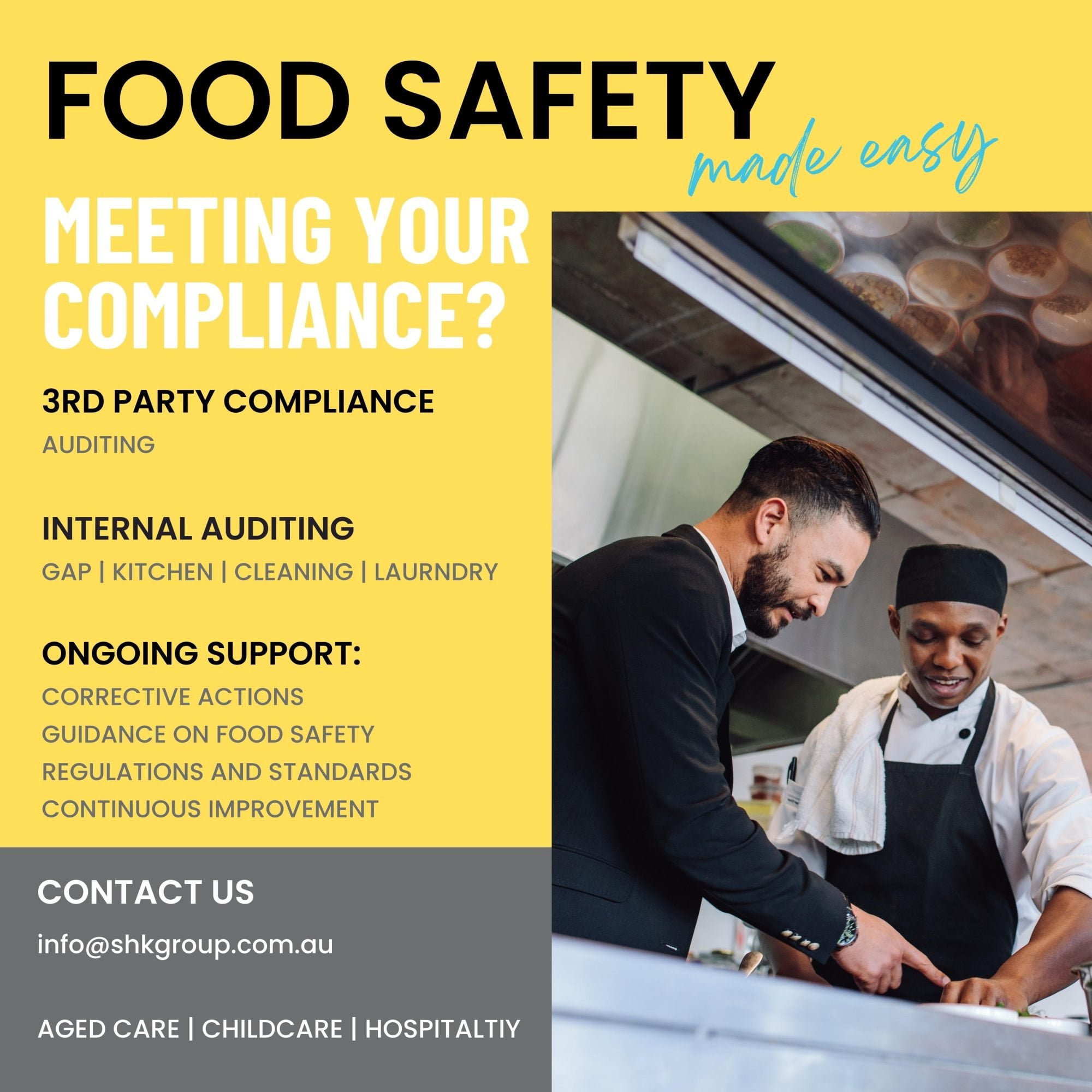World Food Safety Day is an annual observance held on June 7th to raise awareness about the importance of safe and nutritious food for everyone. It was established by the United Nations General Assembly in December 2018 and is coordinated by the Food and Agriculture Organisation (FAO) of the United Nations and the World Health Organisation (WHO).
The main objective of World Food Safety Day
The main objective of is to promote global efforts to ensure that the food we consume is safe, from production to consumption. It aims to highlight the crucial role of food safety in achieving food security, human health, economic prosperity, and sustainable development.
Various activities and initiatives are organised worldwide to educate and inform people about food safety practices, regulations, and standards. These activities include seminars, conferences, workshops, awareness campaigns, and media events. The emphasis is on promoting practices in food handling, storage, and preparation to prevent foodborne illnesses and protect public health.
This day also serves as a platform for governments, organisations, businesses, and individuals to collaborate and strengthen their commitment to improving food safety systems, sharing knowledge and experiences, and working towards achieving the Sustainable Development Goals related to food security and health.
By raising awareness and encouraging action, World Food Safety Day aims to reduce the incidence of foodborne illnesses, improve food handling practices, and promote access to safe and nutritious food for all people, contributing to healthier lives and sustainable development globally.
The key objectives of World Food Safety Day
The key objectives of World Food Safety Day are as follows:
- Raise awareness: The primary objective of World Food Safety Day is to raise global awareness about the importance of food safety. It aims to educate individuals, communities, and organisations about the risks associated with unsafe food and the essential practices to ensure food safety.
- Promote food security: World Food Safety Day emphasises the crucial role of food safety in achieving food security. By highlighting the need for safe and nutritious food, it contributes to the broader goal of ensuring that everyone has access to sufficient, safe, and nutritious food to maintain a healthy life.
- Prevent foodborne illnesses: Key objective is to prevent foodborne illnesses. By promoting proper food handling, storage, and preparation practices, World Food Safety Day aims to reduce the incidence of foodborne diseases, which can have severe health consequences.
- Strengthen collaboration: The observance encourages collaboration among governments, organisations, businesses, and individuals to strengthen food safety systems. It aims to foster partnerships, knowledge sharing, and cooperation to improve food safety practices globally.
- Advocate for policy actions: World Food Safety Day advocates for policy actions and measures that enhance food safety. It aims to create awareness among policymakers about the importance of robust food safety regulations, standards, and enforcement mechanisms.
- Support sustainable development: By promoting food safety, World Food Safety Day aligns with the broader agenda of sustainable development. Safe food contributes to the health and well-being of individuals and communities, fostering economic prosperity and environmental sustainability.
By pursuing these objectives, we can enhance food security, and promote sustainable development by ensuring that the food we consume is safe, nutritious, and accessible for everyone.
You can contribute and promote food safety in your community
There are several ways you can contribute to World Food Safety Day and promote food safety in your community:
Educate yourself:
Take the time to learn about correct food handling, storage, and preparation techniques. The importance of hygiene, sanitation, and maintaining a clean environment while dealing with food.
Spread awareness:
Share information about World Food Safety Day and its significance with your family, friends, and colleagues. Utilise social media platforms, organise local events, or participate in community gatherings to raise awareness about food safety.
Practice safe food handling:
Ensure that you handle and prepare food in a safe manner. Follow handwashing techniques, use separate cutting boards for different food items, cook food thoroughly, store leftovers correctly to prevent contamination and foodborne illnesses.
Support local producers:
Buy food from reputable sources such as local farmers’ markets or trusted suppliers who prioritise food safety. By supporting local producers, you encourage the adoption of sustainable and safe farming methods.
Engage with authorities:
Reach out to local government agencies responsible for food safety regulations and policies. Express your concerns, provide feedback, and participate in discussions or initiatives related to food safety in your community.
Volunteer or participate in food safety programs:
Join or support organisations that work towards improving food safety practices. Offer your time, skills, or resources to initiatives that educate people about food safety or assist in implementing food safety standards.
Teach others:
Share your knowledge and experiences with others. Conduct workshops, training sessions, or demonstrations on food safety practices in schools, community centres, or workplaces.
Reduce food waste:
Actively participate to reduce food waste by practicing proper food storage, planning meals, and supporting initiatives that redistribute surplus food to those in need. Food waste contributes to food safety challenges, as it can attract pests and lead to contamination.
Advocate for stronger food safety policies:
Stay informed about food safety policies and regulations in your country or region. Advocate for stronger measures, such as improved inspections, better labelling, and stricter enforcement of standards.
Remember, small actions can make a significant impact when it comes to promoting food safety.
By raising awareness, adopting safe practices, and engaging with your community, you contribute to a healthier and safer food environment for everyone.
As we commemorate, let us remember the vital significance of safe and nutritious food in our lives. By raising awareness, promoting good practices, and advocating for stronger food safety measures, we contribute to a healthier, more secure future for all. Let us work together, from individuals to communities, governments to organisations, in fostering a global culture of food safety. Each action taken, no matter how small, can make a meaningful impact and pave the way for a world where safe food is accessible to everyone. let us commit to safeguarding our health, protecting our communities, and ensuring a sustainable future through the power of food safety.
reach out to the team at SHK Group
discuss your specific needs and get a customised service to suit your organisation.
Here are some ways SHK Group can contribute to enhancing food safety:
Food Safety Audits:
SHK Group conduct comprehensive audits of our organisation’s food safety practices and systems. This involves evaluating adherence to food safety regulations, identifying potential risks or gaps, and providing recommendations for improvement.
Training and Education:
SHK Group develop customised training programs and materials to educate your staff on best practices in food safety. This covers areas such as food handling, hygiene, sanitation, and allergen management, empowering teams with the knowledge and skills necessary to maintain high standards of food safety.
Standard Operating Procedures (SOPs):
SHK Group assist in establishing and implementing robust standard operating procedures specific to your organisation’s operations. These SOPs would outline clear guidelines and protocols for various food safety processes, ensuring consistency and minimising the risk of contamination or foodborne illnesses.
Regulatory Compliance:
SHK Group support your organisation in staying up to date with relevant food safety regulations and compliance requirements. We help you navigate complex regulatory framework, interpret guidelines, and implement necessary measures to meet and exceed regulatory standards.
Risk Assessment and Management:
SHK Group conduct risk assessments to identify potential hazards and vulnerabilities within your organisation’s food production and handling processes. Based on the findings, we then assist you in developing risk management strategies and controls to mitigate these risks effectively.
Traceability and Recall Systems:
SHK Group assist in implementing traceability systems to track and trace food products throughout the supply chain. In the event of a product recall or food safety incident, we help establish protocols for timely and effective communication, containment, and recall processes.
Continuous Improvement:
SHK Group provide ongoing support and guidance in establishing a culture of continuous improvement in food safety within your organisation. This may involve regular monitoring, evaluation, improvement of processes, as well as keeping abreast of emerging trends and technologies in the field of food safety.
By leveraging the expertise and services of SHK Group, we can strengthen your organisation’s food safety practices, enhance compliance with regulations, and ensure the delivery of safe and high-quality food products to our vulnerable consumers.



